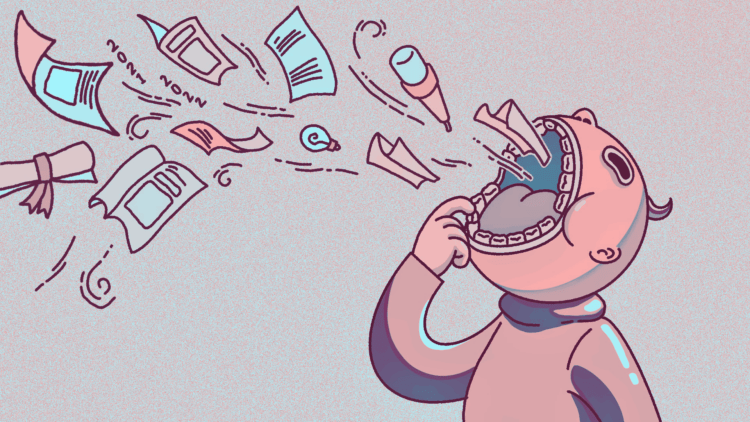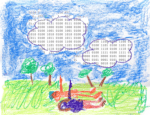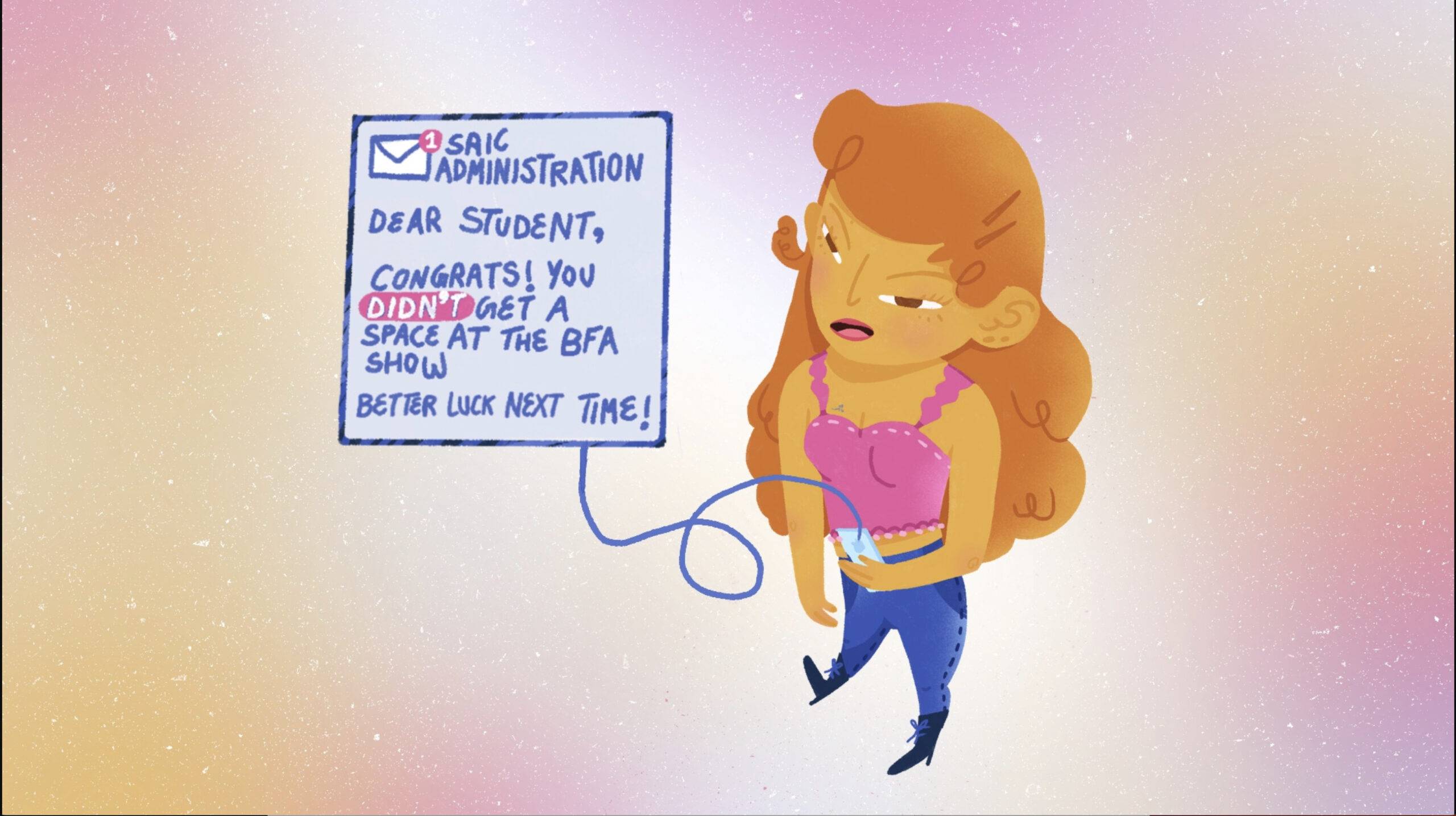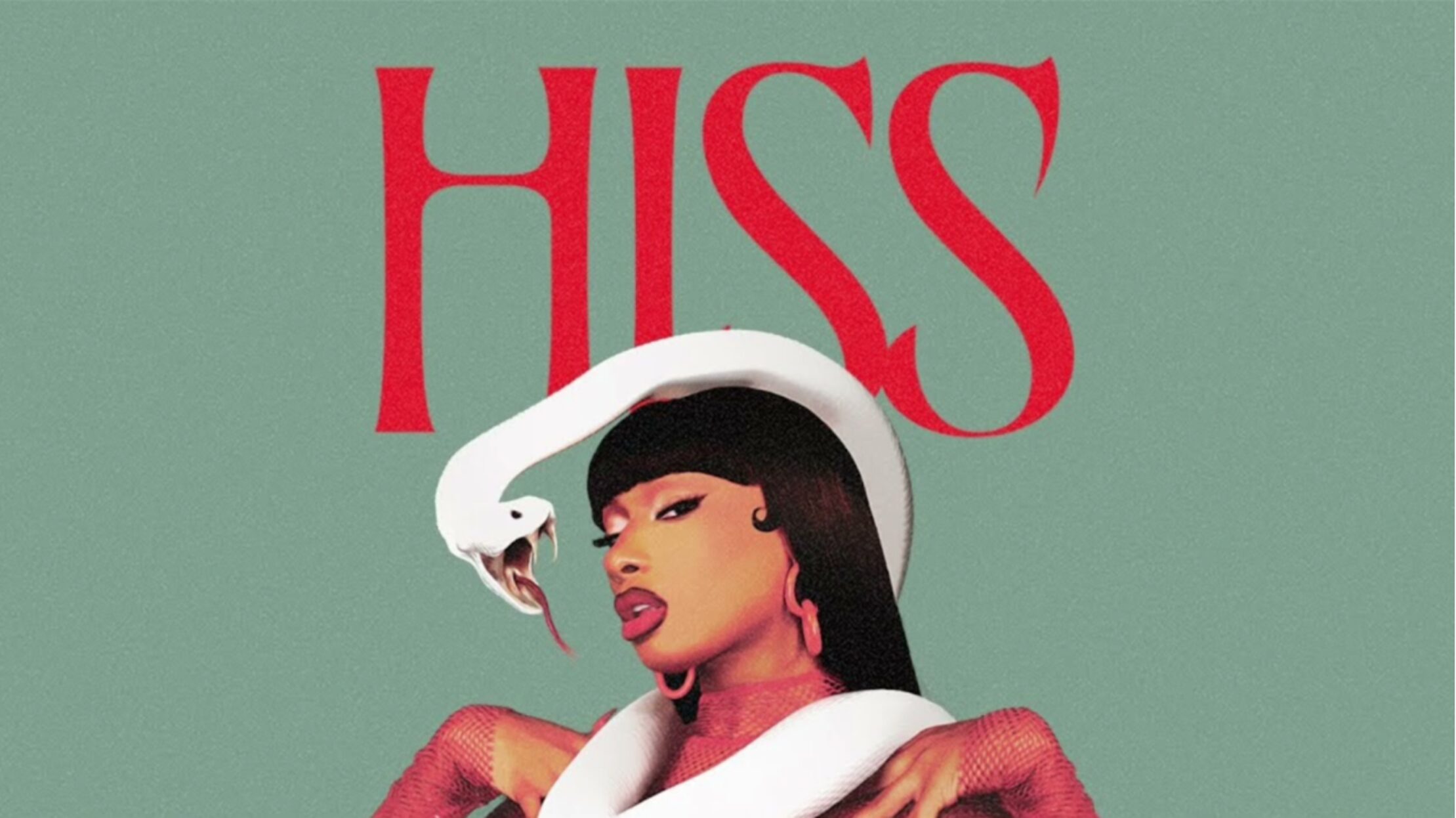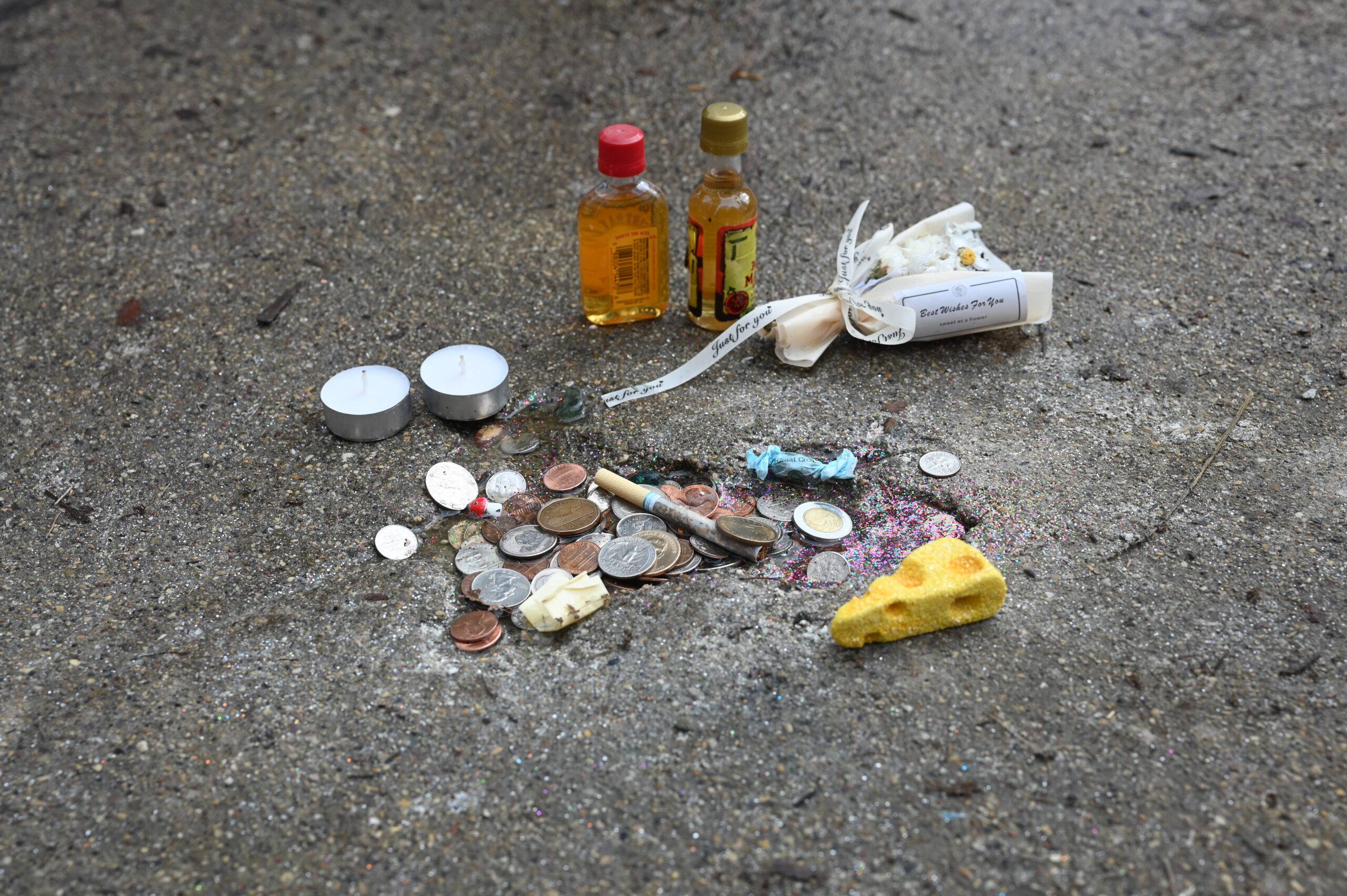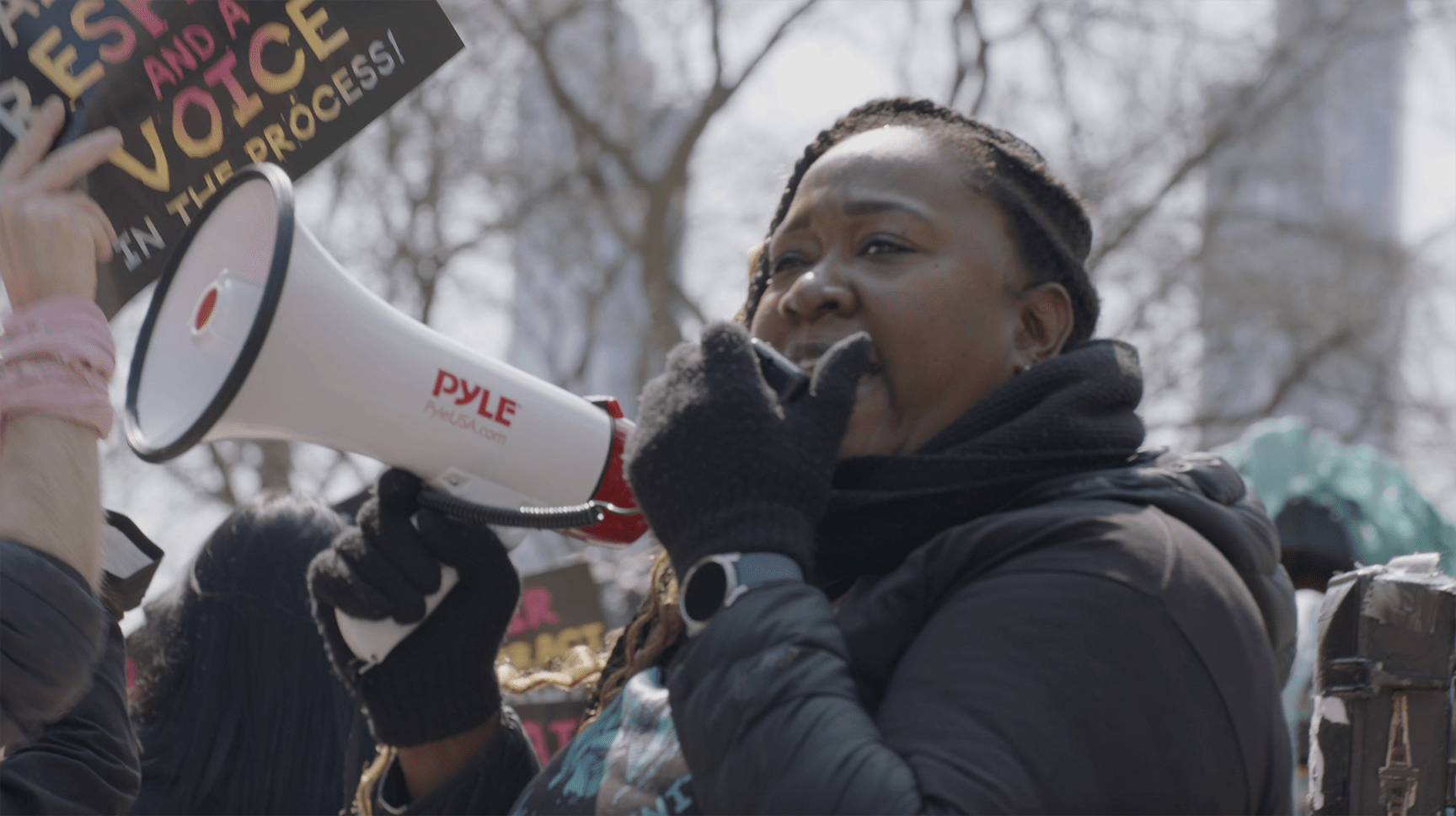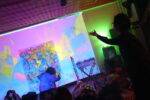This week’s Mascot was written by Michaela Chan.
Just around the corner… “You are A(nti) Racist” exhibition at Columbia College of Chicago
On the west side of S. Wabash, near the Roosevelt “L,” five-foot-tall letters declare: “YOU ARE ANTIRACIST.” Looking closer, the letters “-nti” of “anti” are striped, as if blurred out, and the message becomes, “YOU ARE A RACIST.”
The letters will stand from Mar. 10 – Apr. 21 in the Glass Curtain Gallery as part of the Design As Protest (DAP) Collective. DAP is “a collective of designers mobilizing strategies to dismantle the privilege and power structures that use architecture and design as tools of oppression.”
According to the handout, DAP demands are 1) divest and reallocate police funding; 2) cease the implementation of hostile architecture and landscapes; 3) abolish carceral spaces; 4) restructure design’s relationship to power, capital, and our labor; 5) center community leadership in design and planning processes; 6) create, protect and reclaim public space through liberatory planning and policy; 7) cultivate anti-racist visions for affordable and just neighborhoods; 8) preserve and invest in BIPOC cultural spaces; 9) create anti-racist models of design education, training, and licensing.
The exhibit encourages passersby to contemplate: When not actively anti-racist, is a person passively racist? Disruption of pervasive colonial hierarchies requires energy.
Isabella Gomes visits SAIC
On Wednesday, Pulitzer Center reporter Isabella Gomes gave a lunchtime talk about her reporting on environmental racism and sex trafficking. Currently a medical student in St. Louis, Gomes dismissed the notion that her resume indicated that she was “lost.” Her interests thread through time, and she’s found the work to support those interests. On the slide with her brief resume, the casual omission of the Ivy League schools Gomes attended speak to her insistence in being relatable.
Gomes also talked about how the journalist is not an activist, but rather a documentarian. This separation of roles allows the public to trust the credibility of the journalist. At the same time, she recognizes she has opinions and is biased.
“Knowing my story is not the most important story about the community,” said Gomes, “that more important work will come later” informs way she approaches investigative journalism. Her priority as a journalist is to establish trust and build relationships. For example, she found that residents of the historically disenfranchised Cherry Hill neighborhood in Baltimore did not trust journalists, so she spent two months attending the events of the neighborhood’s nonprofits without a notebook or camera. When asked to participate, she was forthright that she could not, as eventually she wanted to write a story about the place.
Gomes’ reporting on sex trafficking envigorates her current work in health care. Currently, the trope of a victim is too narrowly understood, and conflating sex trafficking with commercial sex and adult entertainment under the umbrella of “sex work” harms efforts to root out sex trafficking. Read more of Gomes’ reporting here.
Cloud storage ends for alumni and students anticipate new limits
Google announced that they are ending unlimited cloud storage for institutions, like SAIC, which they previously provided free of charge. As a consequence, SAIC has chosen to deactivate alum accounts and set storage limits for current students. Doubtless, students and alumni started scrambling to cull and download their data from SAIC accounts. With folders and files with enigmatic names such as, “Forty pancakes” and “Untitled until December,” the task quickly frustrates cloud-users.
In the communication, Adams spun the change as an opportunity to be green: “Unlimited storage and its energy demand is ultimately unsustainable both economically and environmentally, so I am hopeful that we can collectively embrace this change.” Yeah, ok. Green-washing is easy to detect when “forced” is the verb of choice in a previous paragraph.
If the school is serious about reducing its cloud storage demands, I hope to see a communication from the Chief Information Officer about how institution-wide policies are being adapted so that folders in administrative branches aren’t allowed to collect virtual dust and suck real energy. In the meantime, remember that Google does cater to the market. As a consumer in the market, I must keep in mind the long term incentives, namely, a green planet to continue calling home.
The “Caste” book club is a myth
According to SAIC’s anti-racism committee’s first newsletter of the 2021-2022 academic year: “This spring there will be multi-session, book club-style events to collectively consider, critique, and learn from ‘Caste,’” by Isabel Wilkerson. Our pinhead-sized spring break does little to commemorate the halfway mark of our spring semester, but here we are, halfway without a whisper about the book club.
In a kickoff video conference in the fall semester, around 65 students and faculty gathered for a preliminary run-down of the book. The faculty in attendance were generally unconvinced by the book’s merits as a primer on American racism. Lecturer Patrick Lynn Rivers, of the liberal arts department was less than generous, quipping “colonialism is kinda absent in the book,” and “Kim Kardashian may have more progressive politics than Wilkerson.” Nonetheless, most showed an appreciation for the opportunity for co-reading.
Cracking open the crisp hardcover distributed by the school at the end of the fall semester, I found hints in the Table of Contents hints of a promising intersectionality: “Toxins in the permafrost and heat rising all around,” and “The inevitable narcissism of caste.”
We’ll see if a book club materializes to provide the impetus to binge read. Come to think about it, hype about “Caste” last spring was promoted to prospective students. Maybe this phantom book club is a perennial installment of talking the talk, in lieu of walking the walk.
Michaela Chan (MFAW 2023) is visiting Rochester!!!

